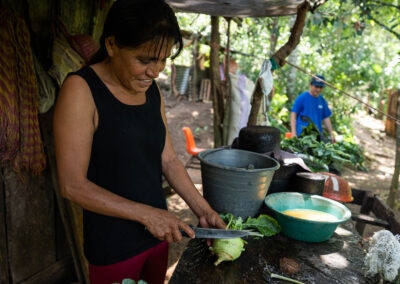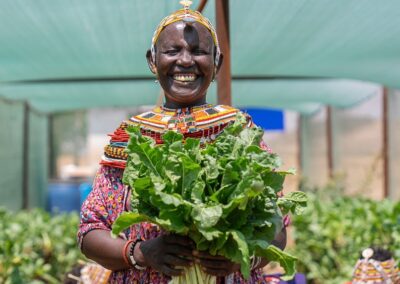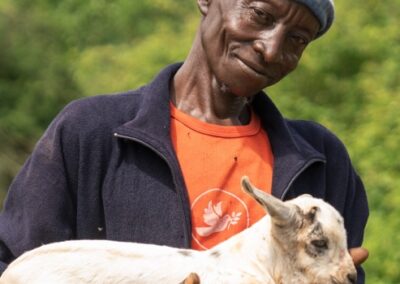Agricultural and Animal Husbandry Questions & Answers
Agricultural and Animal Husbandry Questions And Answers
Operation Blessing’s agricultural and animal husbandry programs, made possible by the generosity of our donors and partners, are creating lasting solutions to fight poverty and hunger. By equipping families with the resources and training to succeed in farming and livestock management, we empower communities to build a future of self-sufficiency and food security. The heartfelt stories of those impacted reflect the profound difference our supporters make, and with continued generosity, we can reach even more people in need.
What are the typical agricultural and animal husbandry activities that Operation Blessing supports through its microenterprises?
Operation Blessing supports a variety of activities, such as crop farming (beans, chili, mushrooms), and animal husbandry (chicken raising), which are designed to be small-scale businesses that participants can manage to generate income and achieve food security.
How does food assistance help hardworking individuals facing financial stress?
Food assistance allows individuals to redirect limited funds toward other essential expenses like rent, transportation, and medical bills. It provides relief, helping them maintain stability despite financial challenges.
What role do food pantries play in providing hunger relief?
Food pantries offer a dependable source of nutritious food to individuals and families struggling to afford groceries. They serve as a crucial support system, ensuring that no one goes hungry.
How does food distribution impact struggling families?
By providing access to essential food items, food distribution efforts reduce financial stress and improve overall well-being. Families can focus on other priorities, such as education and healthcare, without the constant worry of food insecurity.
Why is community support important in fighting hunger?
Hunger relief efforts rely on the generosity of individuals, churches, and organizations. When communities come together, they create sustainable solutions that ensure food is available for those in need.
How does food assistance help seniors on fixed incomes?
Many seniors struggle with rising living costs, making it difficult to afford nutritious meals. Food assistance programs help bridge the gap, allowing them to maintain a healthy diet without sacrificing other necessities.
What impact does inflation have on food insecurity?
Inflation increases the cost of groceries, utilities, and other essentials, making it harder for families to make ends meet. Food assistance provides relief by offering access to affordable or free food.
How do food partners and distribution programs make a difference?
Partner organizations work together to provide consistent food aid, ensuring that those in need have access to nutritious meals. These partnerships strengthen the fight against hunger.
What challenges do single parents face when providing food for their families?
Single parents often struggle with balancing work, childcare, and rising expenses. Food assistance programs help ease the burden by providing meals that support both parents and children.
How do food pantries contribute to overall community health?
By offering nutritious food options, food pantries help improve dietary health, reduce stress, and support families in maintaining a stable and healthy lifestyle.
Why is food security important for children’s education?
Hunger can negatively impact a child’s ability to focus and perform in school. Food assistance ensures children receive the nutrition they need to stay alert, learn, and grow.
How do financial hardships impact food choices?
Families facing financial struggles may be forced to choose cheaper, less nutritious foods. Food assistance programs provide healthier options, improving overall well-being.
What role do faith-based organizations play in hunger relief?
Many faith-based organizations operate food pantries and distribution programs, offering not just food but emotional and spiritual support to those facing hardship.
How does food assistance impact mental and emotional well-being?
Access to food relieves stress and anxiety associated with financial hardship, allowing individuals and families to focus on their future without the constant worry of hunger.
Why is it important to support hunger relief efforts?
Donations and volunteer efforts ensure that food programs can continue to serve those in need. Every contribution helps bring hope and nourishment to struggling families.
How do food assistance programs benefit widows and elderly individuals?
Many widows and elderly individuals live on limited incomes, making food assistance crucial for maintaining a balanced diet and overall well-being.
What are the long-term benefits of food assistance?
Consistent access to food allows families to work toward financial stability, focus on education, and maintain their health without the constant burden of food insecurity.
How do food distribution partners help expand food access?
Partner organizations work together to distribute food across various communities, ensuring more people receive the help they need.
What impact does hunger have on working individuals?
Hunger affects energy levels, productivity, and overall job performance. Food assistance helps individuals stay focused and capable in their daily responsibilities.
How do food charities provide more than just meals?
Food charities offer emotional support, encouragement, and community connection, helping individuals feel valued and cared for during difficult times.
How does food assistance impact mental and emotional well-being?
Access to food relieves stress and anxiety associated with financial hardship, allowing individuals and families to focus on their future without the constant worry of hunger.
How do food assistance programs support families during medical crises?
Families dealing with medical emergencies often face unexpected expenses. Food assistance helps relieve financial pressure, allowing them to focus on recovery.
What impact do food assistance programs have on community stability?
When families have access to food, they can focus on work, education, and other responsibilities, leading to a more stable and thriving community.
How does generosity play a role in hunger relief?
The kindness of donors and volunteers makes food assistance programs possible, offering hope and sustenance to those in need.
Senegal: Chicken Farming Breaks the Cycle of Poverty
In Senegal, families recovering from hardship are finding new beginnings through Operation Blessing’s Microenterprise Program. Learning to raise and sell chickens has provided sustainable wages, helping families put food on the table and children back in school. Astou, one participant, shared how this opportunity lifted her family out of hunger and gave her sisters the chance to continue their education. With gratitude, she and many others are embracing a future filled with hope and opportunity.
Nigeria: Bean Farming Brings Hope to Widows
In Uke, Nigeria, 33 widows found hope and opportunity through Operation Blessing’s bean farming program. Equipped with tools and training, these determined women harvested nearly 10,000 pounds of beans—earning much-needed income to support their families. For Rose, this meant paying for her twin sons’ senior exams, a step toward a brighter future. Overflowing with gratitude, the widows blessed Operation Blessing and our generous supporters. This initiative not only provided immediate relief but also echoed our broader mission of uplifting widows worldwide, including in Honduras.
Indonesia: Chili Farming Fuels Growth
In Bawamataluo, Indonesia, chili farmers are seeing their livelihoods flourish thanks to Operation Blessing. With high-quality seedlings, modern farming equipment, and expert training, they’ve improved their crops and incomes. Farmers like Mr. Radianus are now earning more and planning to expand, proving that with the right support, small farms can thrive and transform lives.
Thailand: Mushroom Farming Opens New Doors
Seventeen aspiring farmers in Thailand, including Pitipath and Hunna, gained life-changing skills through Operation Blessing’s Mushroom Farm Training Program. Beyond just learning how to grow mushrooms, they mastered cost management and business strategies. Equipped with essential materials like watering hoses, UV protection, and 1,500 packs of mushroom spawn, they received ongoing guidance to ensure their success. Many participants expressed a deep desire to give back—both to their churches and their communities—showcasing how economic empowerment can inspire generosity and faith.
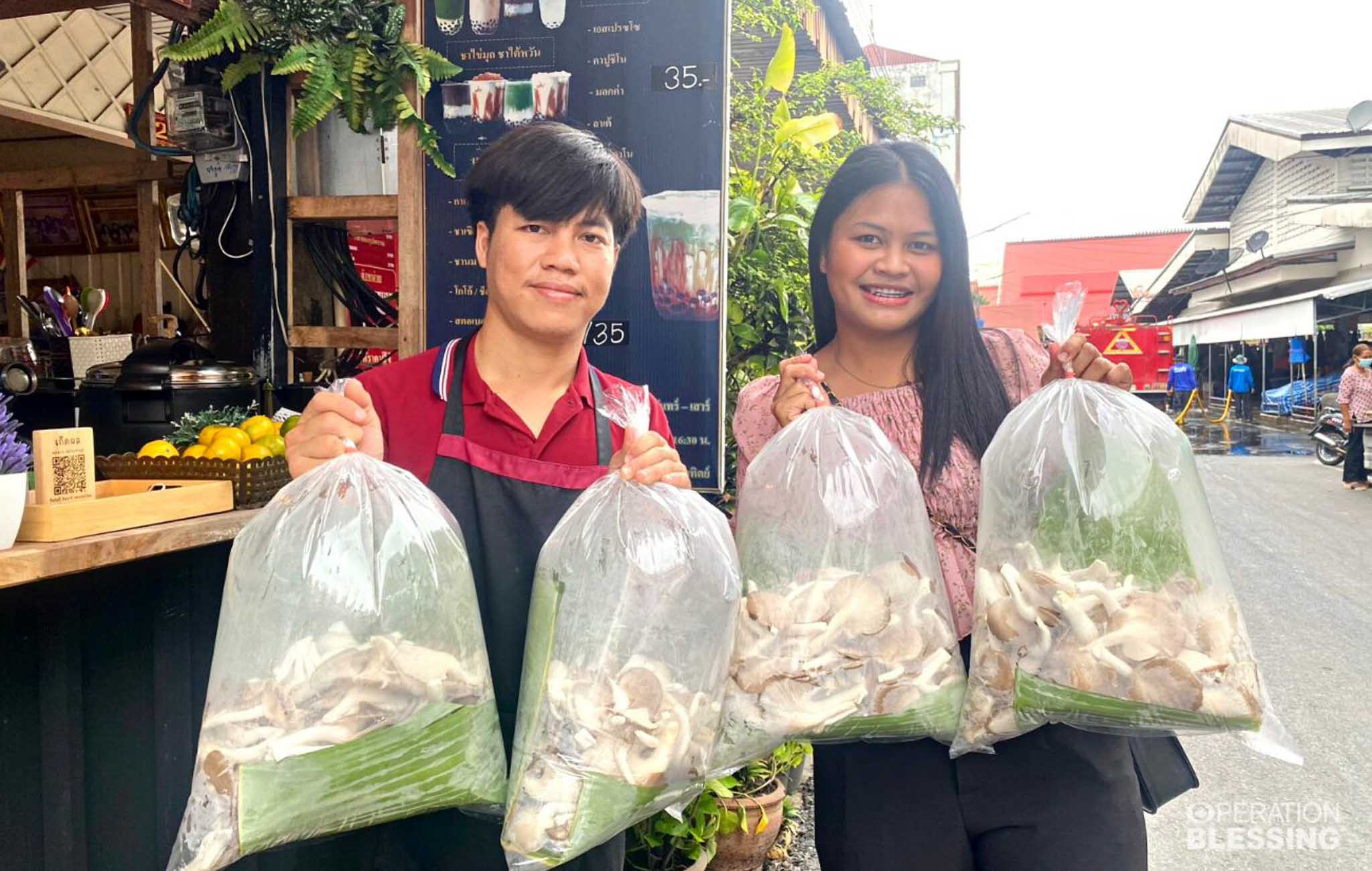
Guatemala: Chickens Provide a Path to Independence
In Guatemala, Operation Blessing’s Chicken Project is helping families move from survival to stability. By teaching participants how to raise chickens and run a poultry business, this program is addressing both hunger and financial insecurity. Families now collect up to 150 eggs a day, with the potential to earn around $780 a month—transforming their futures with sustainable income. Thanks to generous donors, this scalable project is bringing hope to more communities in need.
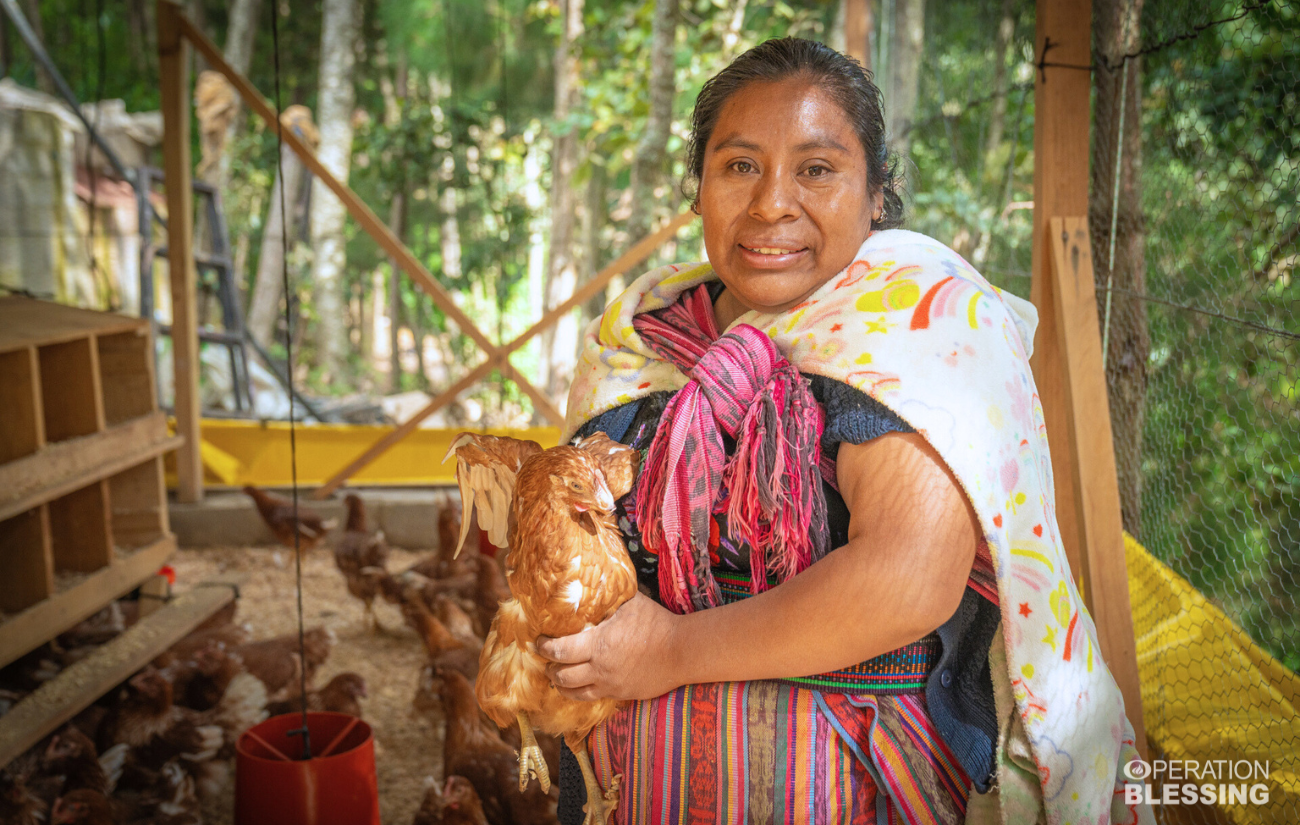
Help Provide Small Business Opportunities
Operation Blessing’s work in Guatemala, Kenya, Peru, Honduras, and beyond demonstrates the transformative power of small business opportunities and microenterprise initiatives. These programs, are only possible because of our dedicated partners who supply the resources and support needed to uplift communities. We invite you to join us by partnering with Operation Blessing today to provide small business opportunities and microenterprise support.
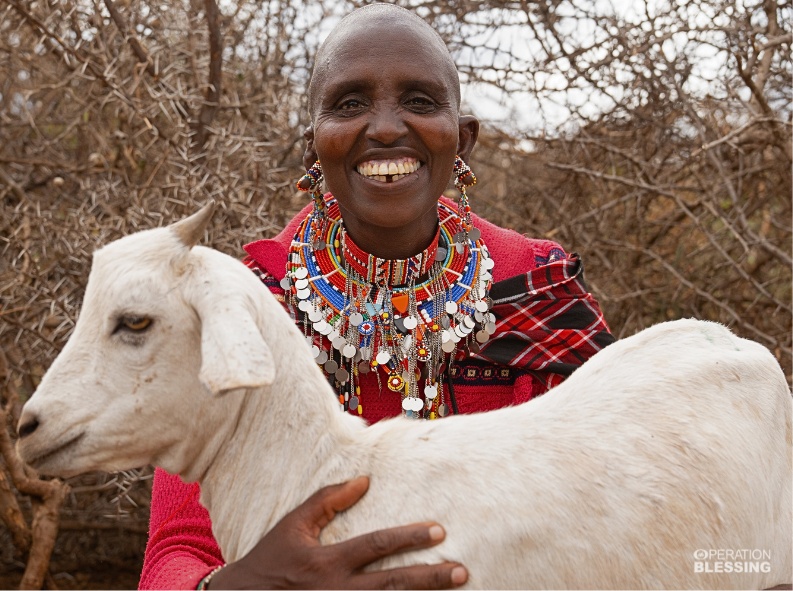
Drew Friedrich, President
